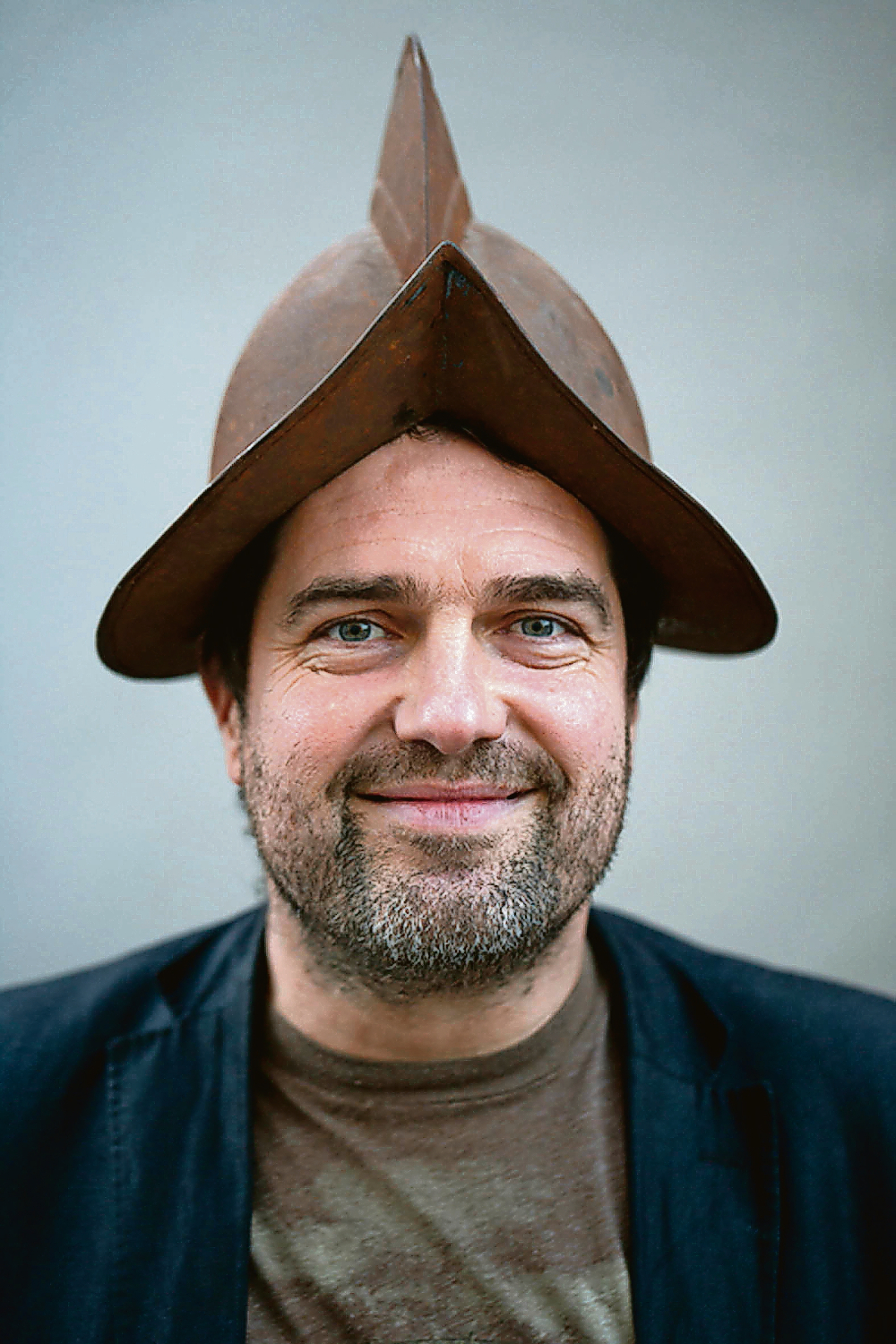Helmuts and berets: "Decolonising Wits" focuses on students within the context of political theatre as performance art.
Decolonising Wits is filmmaker and author Aryan Kaganof’s feature-length film looking at the Wits University end of what has come to be called the #RhodesMustFall movement.
But even that reading is deceptive. For even as the film hints that Wits is a microcosm of what is potentially a national students’ movement aimed at systematically overturning how academia and the campus functions, Kaganof is primarily interested in politics as performance theatre.
As a way of exploring this, he spends most of the film following a clique of students belonging to the Wits chapter of the Economic Freedom Fighters, led by their chairperson, Vuyani Pambo, a self-aware student given to the allure of leading from the front.
Pambo and his band of bereted colleagues hardly ever number more than 10 at any gatherings that make it into the film. Yet what they lack in numbers they make up for in the fervour of their rhetoric and the calculated disorder of their toyi-toyiing.
While Pambo is the face of the group, Kaganof occasionally wanders to other compelling cast members, such as the wheelchair-bound Brian Sibanda, who corners vice-chancellor Adam Habib about a non-progressive disabled students’ policy.
It is Sibanda’s quietly anarchic fighting spirit that drives home the multivalency of the students’ demands. “He’s a fighter, not a wounded soldier,” says one of his comrades, referring to Sibanda negotiating, unassisted, the wheelchair-unfriendly Wits campus.
As we trot alongside the mostly EFF-aligned students to various scenes of confrontation with the students’ representative council (SRC) or Habib, we learn more of the students’ gripes with their institution.
A fly-on-the-wall
From former SRC president Mcebo Dlamini we hear that students are peeved with Wits’s preoccupation with the “multiculturisation” of student residences, yet at the same time, it loses the very same multiculturalism as two sports fields are sacrificed for a children’s hospital named after Nelson Mandela.
The irony of Dlamini, a South African Students’ Congress member, criticising a project named after Nelson Mandela hints at the political fluidity of the current students’ movement. This is a point that Kaganof’s fly-on-the-wall antics, and his loyalty to the EFF clique, does not adequately drive home.

Aryan Kaganof (Niklas Zimmer)
What he seems intent on getting across is the centrality of the toyi-toyi, not merely as a morale-building tool, as it was in the struggles of the previous generation, but as a disruptive, chaotic and theatrical tool.
Kaganof admits that he “liked” how the group of EFF students in particular, and their generation as a whole, operated. “I think they were aware [of] political activity as theatre and they had a sense of media savvy in understanding how activism works as a media trope. That’s why that statue was taken down and it sent shock waves all the way to Oxford University. It is precisely because of this theatre that the EFF has been successful in Parliament.”
To say Kaganof’s fascination with the toyi-toyiing of his subjects was gratuitous would be to ignore the ritualistic power it gains as it wears on your senses. This is the peg on which Kaganof hangs his film.
Political theatre as performance art
“There’s an underestimation of the pedagogic meaning of dancing,” Kaganof says. “I think there’s a recognition by the students that they can’t just change the content of the books or the curriculum but that there is no space for an epistemic tradition which is indigenous.”
Kaganof says he saw his subjects as, ultimately, a representation of the fluxus movement. In a post-interview note, Kaganof wrote: “I am not sure that I stressed enough how important fluxus is for my understanding of the student movement as well as the broader theatrics of the EFF. The film is entirely shaped within this context of political theatre as performance art …”
Kaganof’s aesthetic is shaped by the philosophies coalescing under the fluxus movement that emerged in the 1960s. This is the glue binding the seemingly disparate strands of the film together, infusing it with a meaning larger than the sum of its parts. There is the rather verbose pastor Xola Skosana pontificating from the steps of a coliseum at the University of Cape Town clanging against the more precise and tempered excerpts of Steve Biko. Next to the pastor’s limp phraseology, it is Biko’s words, mostly written and never spoken, that attain biblical infallibility.
There’s Mzekezeke, culled from Kaganof’s earlier kwaito film Sharp Sharp! standing in as the cover artwork to truncated identity, a black skin in a “white” mask perhaps. There’s the ugly beauty of emcee Hymphatic Thabs repeatedly fluffing a verse about South Africa’s defining colonial encounter in the studio. The session’s repurposing seems to provide a coat hanger to suspend the film’s metanarrative of decolonising everything.
Kaganof says Decolonising Wits is the first of a series of films on the student movement. Next stop: Open Stellenbosch.
Decolonising Wits screens at The Bioscope in Maboneng precinct, Johannesburg, from July 4 to 9. For more info, visit public.tixsa.co.za/TheBioscope/Events/89198